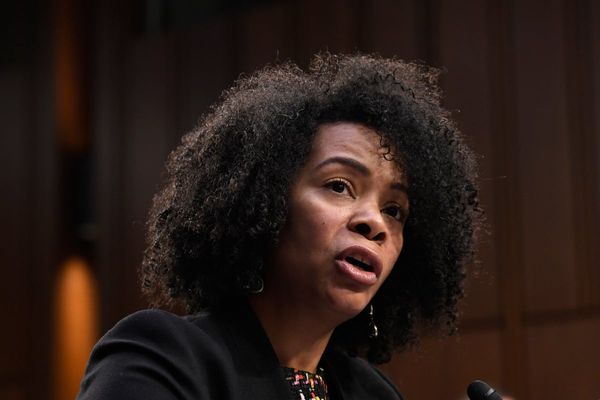"Through the Groves: A Memoir" by Anne Hull; Henry Holt and Co. (224 pages, $26.99)
———
Anne Hull had the kind of Florida childhood kids can’t have any more.
Growing up in the 1960s deep in citrus country in the part of Central Florida known as the Ridge, she ranged through groves with endless “dark green regiments of trees” and the scent of orange blossoms “like God had knocked over a bottle of Ladies of Gardenia.” Her extended family, although peculiar at times, grounded her young world.
It was idyllic, if your definition of an idyll is flexible enough to include a Florida with no air conditioning, where you occasionally need to rescue your little brother from a prowling gator and must try to puzzle out, as a first grader, why your mother sends you to work with your daddy when he goes out to inspect the orange crop.
Hull writes about that world with warmth, humor and a devastating eye for detail in her new memoir, “Through the Groves.” That will come as no surprise to anyone who has followed her stellar career as a journalist, first at the then-St. Petersburg Times and later at the Washington Post, where she won a Pulitzer Prize for her reporting on the mistreatment of injured veterans at Walter Reed Army Medical Center.
“Through the Groves” focuses on her early life, from childhood up through the early part of her journalism career.
She begins by recounting her rides through the groves with her father, whose knowledge of citrus is boundless but whose ability to say no to a drink is waning. He’s a gifted storyteller, enchanting his young daughter for hours with tales as they drive the dirt roads; it’s clear where Hull began absorbing the skills of story.
Her young parents are an unlikely couple. John Hull’s family has owned groves in Florida for multiple generations, and he’s steeped in rural Southern culture. Her mother, Victoria, was born in Brooklyn to a well-off family whose fortunes turned. The two met at Florida State University, married and moved into a house amid the Hull family groves in the tiny town of Hopewell.
But they never really settled. Hull writes of moves around Central Florida — Hopewell, Sebring, Plant City — as her father’s drinking worsens. She movingly captures a child’s sense of fear and confusion as the marriage shatters. Her father recedes from their lives, but his influence lingers.
But Hull’s life is notably shaped by formidable women. One is Big Nanny, her Hull great-grandmother, who controls the whole family via a big leather-bound checkbook.
John Hull’s mother, Gigi, is a former society belle who “talked in a breathy Southern drawl, all the airflow squeezing up through too-small windpipes, forced out with charm. It was like she’d been socked in the breadbasket with the butt of a Yankee rifle.”
After the breakup, Victoria moves with Anne and her brother, Dwight, finally settling in St. Petersburg with her mother, called Damie.
Damie has a posh accent acquired in finishing school and a house crammed with exotic bric-a-brac. All the clutter drives Victoria crazy, but Damie and her granddaughter are kindred spirits.
Damie goes to sleep with a transistor radio under her pillow, playing the Top 40 hits from WLCY, and she gets Anne her own radio, too. They’re both Jackson 5 fangirls, and when they hear the group will perform in Tampa, Damie gets tickets. They ride a bus across the bay to Curtis Hixon Hall for an ecstatic experience.
Most formidable, though, is Victoria. She supports herself and her kids as a teacher, earning advanced degrees, teaching summer sessions and rising through the ranks to eventually become a principal.
Hull remembers that before her parents broke up, she would hear her mother typing at night, after everyone else was asleep. As a kid, she only wondered how her mother learned to type so fast. She finds out years later, going through “old musty bound copies of the Plant City Courier in the local historical society,” that her mother wrote a column for the paper. “She wrote in the persona of a wife and mother navigating the demands of New Year’s resolutions, children’s birthday parties, and appointments at the beauty salon. The writing was blithe and witty, and none of it true.”
Hull also writes of the gradual process of realizing that she’s a lesbian. Early hints are her fascination with the mermaids at Webb’s City and her swooning response to the scent of a pretty fifth grade teacher’s Clairol Herbal Essence shampoo. But it’s not until she’s 18 and working a Christmas-break job in a restaurant that a fellow employee, a woman she calls Blue Eyes, brushes against her leg and sets a fire.
Coming out to her family doesn’t seem to have been terribly fraught; after Victoria’s second marriage breaks up, her daughter helps pull her out of a depression by taking her to drag brunches, where Victoria and the queens bond. As an adult, though, Hull does attend a relative’s funeral in Plant City where, at the graveside, the preacher calls her out by name and prays for God to save her from homosexuality.
Hull also recounts her legendary start in journalism at the Times. She had no journalism degree or newsroom experience; she was hired as a clerk. “After six months in sports,” she writes, “I was promoted to answering phones on the city desk — the big leagues. From 4 to 11 p.m., I had a kook on hold on every line.” (One of those kooks was Damie, who called every night to “get a bead on the day’s news.”) She took notes on every conversation.
One day a friend on the staff asked her if she’d like to write a record review, and the rest is history. By the time she left the Times, she was a high-powered investigative reporter with a gift for capturing the human side of stories.
In “Through the Groves,” she does just that with her own story. It’s a rich nostalgia trip for longtime Floridians, and a witty and tender tale of coming of age and coming out.







